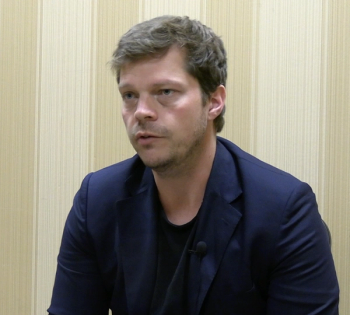
Matthew Berry Receives IRDG Chalmers and Dent Student Travel Award
The Infrared and Raman Discussion Group (IRDG) Chalmers and Dent Student Travel Award will be presented to Matthew Berry at SciX 2021, taking place in Providence, Rhode Island, September 26–October 1.
The Infrared and Raman Discussion Group (IRDG) Chalmers and Dent Student Travel Award will be presented to Matthew Berry at SciX 2021, taking place in Providence, Rhode Island, September 26–October 1. The Chalmers and Dent Student Travel Award recognizes an outstanding PhD student through financial support to present their research to an international audience at the annual SciX meeting. The award is named after two previous chairs of the IRDG, John Chalmers and Geoff Dent, in recognition of their continuing support for the IRDG and for their support of students and early career researchers. Throughout their careers, Chalmers and Dent have been highly active in the development and promotion of the vibrational spectroscopists of the future in academia and industry through mentoring, encouragement, and inspiration.
Berry’s interest in research involving the application of spectroscopic techniques and nanotechnology to solve biological problems influenced his decision to study for a PhD. In September 2018, he joined the OPTIMA Centre for Doctoral Training to begin a joint center PhD program in Optical Medical Imaging between the University of Strathclyde (Glasgow, Scotland) and the University of Edinburgh (Edinburgh, Scotland) with an integrated master’s in healthcare Innovation and Entrepreneurship from the University of Edinburgh Business School. He currently works under the supervision of Professors Karen Faulds and Duncan Graham in the Centre for Molecular Nanometrology at the University of Strathclyde, where he is researching the development of surface-enhanced spatially offset Raman spectroscopy (SESORS) for optical medical imaging applications.
Berry uses SESORS to image multiple bacteria simultaneously within 3D printed models through tissue via their specific interaction with surface-enhanced Raman spectroscopy (SERS) active nanotags within SESORS spectra and images. The goal of his PhD is to broaden the applications of SESORS imaging and gain a deeper understanding of the technique to bring it closer to use in a medical setting.
Newsletter
Get essential updates on the latest spectroscopy technologies, regulatory standards, and best practices—subscribe today to Spectroscopy.




